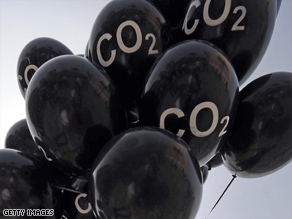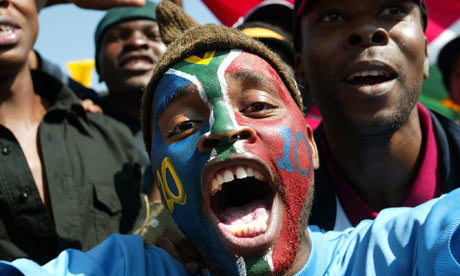capitalism
World People's Conference on Climate Change: Some critical comments on the People's Agreement

[For full coverage of the World People's Conference on Climate Change, including the full text of the documents, click HERE.]
By Daniel Tanuro and Sandra Invernizzi
June 2010 -- International Viewpoint -- The World People's Conference on Climate Change and the Rights of Mother Earth, which met in Cochabamba (Bolivia) from April 20-22, 2010, at the invitation of Bolivia's President Evo Morales, was an enormous success. Thirty-thousand participants discussed for several days the various facets of the climate crisis and adopted a series of very interesting documents, from a resolutely anti-capitalist standpoint.

By Dave Holmes
Despite the apparently secular nature of so much of modern life, religion is a long way from being a spent force. For revolutionary socialists aiming to mobilise the masses for a fundamental transformation of society, religion is a question which cannot be ignored.
1. While each country has its specific situation, in the West it is undeniable that the traditional religions are considerably diminished compared to even a few decades ago, with church attendances down and religious identification increasingly nominal for wide layers of the population. Moreover, the churches are being shaken by multiple and ongoing controversies and crises — over the role of women and gays, especially as priests; over revelations of past and present sexual abuse of women and children in their institutions; over financial scandals; in the case of the Roman Catholic Church, over damaging exposures of leading clergy flouting their own code of celibacy; over clashes between their conservative and more liberal wings; and over their increased integration into the activities of the state through government funding for charitable and welfare work.
South Africa: The myths and realities of the FIFA soccer World Cup

By Dale T. McKinley, Johannesburg
June 15, 2010 -- Offering an unapologetic public critique of the FIFA Soccer World Cup at the height of the collective frenzy of positive expectation, feel-good nationalism and general public excitement that now exists in our country is a risky thing to do. But it is a risk that needs to be taken precisely because, no matter what the context, myths always need to be separated from realities. In the case of the "greatest show on Earth", leaving aside the very real beauty and enjoyment of the game of soccer, the myth-making has created a situation akin to inhaling tik -– a short-lived high/euphoria that obscures all reality, followed by a rapid, depressing "come down" back to that reality.
2010 World Cup: Africa's turn or turning on Africa? A political economy of FIFA's African adventure
PowerPoint slideshow by Patrick Bond.
[See also South Africa: Will the World Cup party be worth the hangover? by Patrick Bond.]
By Ashwin Desai and Goolam Vahed
[This article first appeared at Soccer & Society, volume 11, issue 1 & 2, January 2010.]
Video: David Harvey -- `The crises of capitalism'
On April 26, 2010, Marxist geographer professor David Harvey spoke to the the Royal Society for the encouragement of Arts, Manufactures and Commerce (RSA) to explain how capitalism came to dominate the world and why it resulted in the current financial crisis. He asks: is it time to look beyond capitalism towards a new social order?
Taking a long view of the current crisis, Professor Harvey exposes the follies of the international financial system, looking closely at the nature of capitalism, how it works and why sometimes it doesn’t.
Michael Lebowitz: `We must choose socialism over capitalist barbarism'
Michael Lebowitz was interviewed by Srećko Horvat during the Subversive Film Festival and
Olivier Besancenot: `We are all Greek workers!'
By Olivier Besancenot and Pierre-François Grond, translated by Richard Fidler and Nathan Rao
May 14, 2010 -- Le Monde via The Bullet -- The events in Greece concern us all. The Greek people are paying for a crisis and a debt not of their making. Today it is the Greeks, tomorrow it will be others, for the same causes will produce the same effects if we allow it.
Audio: BBC In Our Time on Karl Marx
Marx
Available to listen.
Last broadcast on Thu, 14 Jul 2005, 21:30 on BBC Radio 4M
Can capitalism fix climate change?
By Simon Butler
April 14, 2010 -- Albert Einstein defined insanity as doing the same thing over and over again and expecting different results. It has taken capitalism about 250 years to generate enough waste and pollution to press dangerously against nature’s limits. With such a damning record, there should be no grounds to expect a different outcome in the future.
Yet the mainstream discussion about how to tackle the climate crisis still assumes that, this time around, capitalism can be made sustainable.
In an April 3 Sydney Morning Herald piece arguing for capitalists to take a leading role in resolving the climate crisis, Paddy Manning said it “was an article of faith for this column” that a free market could respond effectively to the challenge of climate change. But, struggling to come up with Australian capitalists responding positively to the challenge, he was forced to admit: “Faith is needed, because climate change is proof of colossal market failure.”
Capitalism and food: Let them eat junk

An interview with Rob Albritton
March 2010 -- Rob Albritton’s Let Them Eat Junk: How Capitalism Creates Hunger and Obesity (2009), published by Arbeiter Ring Press in Canada and Pluto Press in the UK, offers a welcome and urgently needed analysis of “how the profit fixation of capital has led us deeply into a dangerously unsustainable system of food provision, a system that totally fails when it comes to distributive justice and to human and environmental health” (p. 201). His analysis takes us inside capitalism and shows how its “deep structures” manage our agricultural and food systems in irrational ways.
Socialist Project’s Relay magazine recently asked John Simoulidis to interview Robert Albritton about his book and current global struggles to address the failures of our agriculture/food system. Posted at Links International Journal of Socialist Renewal with permission.